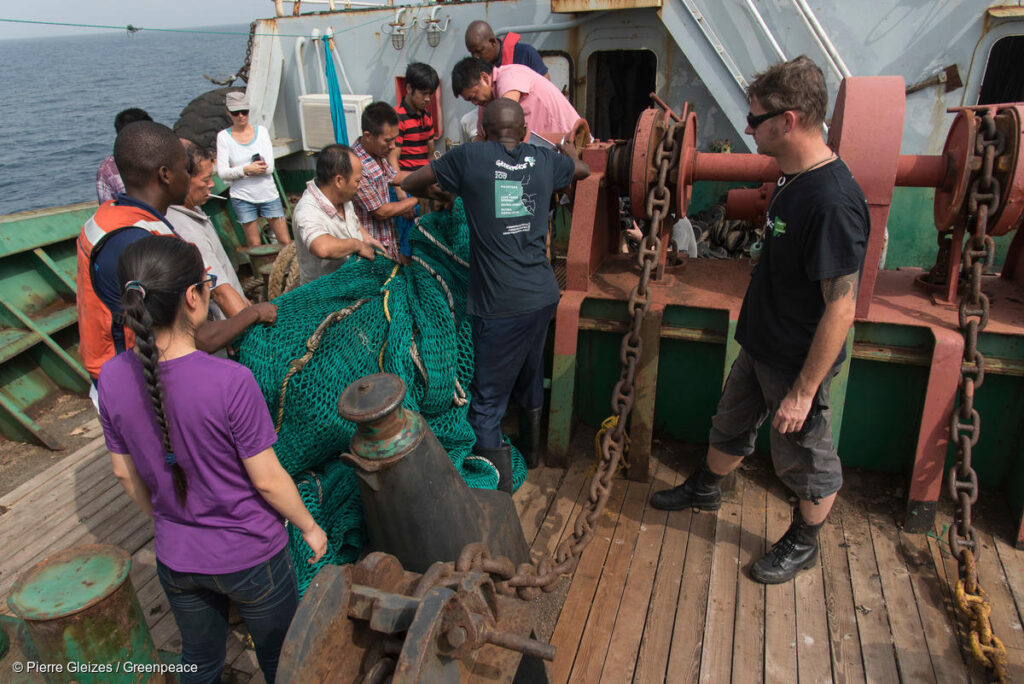ADF STAFF
About 20% of illegally caught fish worldwide comes from waters near The Gambia, Guinea, Guinea-Bissau, Mauritania, Senegal and Sierra Leone, according to a new report by news organization Investigative Journalism Reportika (Ij-Reportika).
record, according to the IUU Fishing Index.
China’s overfishing of West African waters drives food insecurity and harms the artisanal fishing industry. In Ghana, for example, the average annual income has dropped by as much as 40% per artisanal canoe in the past 15 years.
As Ij Reportika noted, Chinese trawlers notoriously engage in “saiko,” the illegal transshipment of fish at sea. In 2017, the Environmental Justice Foundation (EJF) found that saiko took 100,000 tons of fish from Ghanaian waters alone.
“Illegal fishing and overcapacity in the Ghanaian trawl sector is having catastrophic impacts on coastal communities across the country,” EJF’s Chief Operating Officer Max Schmid told Voice of America.
Chinese bottom trawlers catch an estimated 2.35 million tons of fish a year in the region, accounting for 50% of China’s total distant water catch and worth about $5 billion, the EJF reported.
It’s not rare for West Africa’s fishermen to have confrontations with Chinese crews. In 2020, for instance, three Mauritanian fishermen died after their canoe was struck by a Chinese vessel.
In Sierra Leone, 47-year-old fishermen
Ibrahim Bangura said he routinely spends three days at a time fishing in the Atlantic Ocean and often encounters Chinese trawlers.“There’s so, so many of them,” Bangura told The Guardian. “They disturb my property, trash my nets. And if you try to stop them, they will fight you.”
Another Sierra Leonean fisherman said a Chinese crew once threw boiling water at him when he confronted them over their activities.
West Africa now is considered the world’s epicenter for IUU fishing, which steals an estimated $2.3 billion to $9.4 billion annually from local governments. The continent loses $11.5 billion annually to illegal fishing, according to the Financial Transparency Coalition.
China has increasingly targeted East African waters since 2016.
As in West Africa, Chinese vessels commonly fly “flags of convenience” in the region. This lets them use open vessel registries to fish in the open sea where coastal nations do not have jurisdiction. They also are known for “flagging in,” meaning they use and abuse local rules to flag a foreign-owned and operated fishing vessel into an African registry and fish in local waters.
There is little oversight of open registries, which are online. This means that a fishing company in China can register to fish in Kenya and pay the registration fee electronically
As Ij Reportika noted, Somalia has signed agreements that allow Chinese fishing vessels in its waters. The report said that the Somali government “often ignores the needs and demands of the locals and the artisanal fishermen.”
“Significant levels of Chinese fishing combined with inconsistent governance means Somalis are not benefiting from the exploitation of their marine resources at a local or national level, leading to insecurity at both scales,” the report said.

